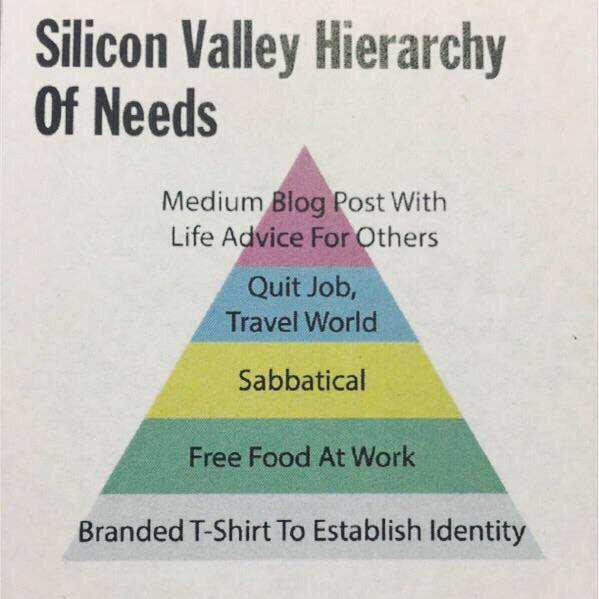What if I’m deluded?
Wednesday, Mar 01, 2017 4:27:00 PM
I think it’s always healthy to consider every criticism. As I research meaning, I’ll use this post to track every criticism I find and my self-analysis. Some are plausible, some probably apply to many people, and some seem like baseless pop-psychology. It’ll be useful to periodically review this list to make sure I’m not falling into any traps.
-
Trap: Trying to find meaning is just a proxy for an in-born need for social stability.
But because man, out of need and boredom, wants to exist socially, herd-fashion, he requires a peace pact and he endeavors to banish at least the very crudest [war of all against all] from his world. This peace pact brings with it something that looks like the first step toward the attainment of this enigmatic urge for truth. (Nietzsche)
Trap: Trying to find meaning is a coping mechanism or rationalization for failure.
Trap: Trying to find meaning is an existential crisis in the face of an impending death.
Trap: Trying to find meaning is pointless but people associate an undue importance with it because it’s such a difficult (or impossible) task.
Trap: Deciding on what is meaningful is mired in potential cognitive dissonance.
Trap: Interventions not based on precise understanding are likely to do more harm than good.
Trap: There is no such thing as objective meaning.
Trap: Ideas of meaning are psychological delusions used to enhance survival that are the result of millions of years of evolutionary biology.
-
Trap: Displacing a serious struggle with distractions and delusions as depicted by this sarcastic Maslow hierarchy:
- My thoughts: This is certainly possible; however, I’ve avoided the “travel the world” trope, but maybe that’s because I already did that for ten years as part of my job? Also, I certainly didn’t mean for this blog to come off as advice to others, but it’s worth exploring my need to share my journey even though I know from past experiences that most people that I invited to follow this will likely contribute little. I can say that I made a conscious decision to exclude certain people (most of my contacts) from my initial email because I thought they might take this the wrong way, so that’s some evidence that this doesn’t come from narcissism.
-
Trap: Quitting and writing a blog are just the luxuries of a spoiled, rich, lazy, and decadent boredom.

- My thoughts: This is certainly possible; however, I seem to be struggling and wrestling with the questions, but I must admit I’ve indulged in some selfish pursuits at the same time. It certainly doesn’t feel like a life-or-death struggle, but why should it? Maybe after a certain amount of wealth, cleaning up the psyche, and healthy friendships and hobbies, Maslow’s self-actualization is simply the next step?
-
Trap: From an evolutionary biology point-of-view, perhaps being male — a sort-of mutated female — requires a pseudo-child to bear (e.g. “my work is my baby”) in the form of self-actualization.
- My thoughts: Need some evidence and primary sources on this to evaluate further; otherwise, might just be pop-psychology.
-
Trap: The search for meaning is an over-intellectualization of being burned out and needing a vacation.
- My thoughts: This is certainly possible; however, I enjoyed working until the last day (and even helped some colleagues a bit, for no pay, after leaving), and I didn’t feel burned out. I did spend the first few weeks mostly just sleeping, but that felt to me like a luxury of freedom that I worked hard for 15 years for, rather than being burned out.
-
Trap: This is just because you don’t have a family, children, and/or other major responsibilities.
- My thoughts: The latter part of this is true for me right now. I imagine a bright future with family, children, and other major responsibilities and Baumeister et al 2013 suggests that these are contributors to meaning, but it’s unclear to me that this answer is necessarily so simple, and it disregards Frankl’s argument. This argument and the search for meaning do not seem mutually exclusive to me, and there’s a converse trap of using this argument (or hedonism, drugs, etc.) as an excuse instead of finding meaning (e.g. no time, too much stress, etc.).
Trap: You can’t accomplish much that’s meaningful without money, power, social network effects, health, free time, friends, etc.
Trap: Discovering or even understanding meaning is hopeless.
Trap: The search for meaning does not appear to lead to its presence.
Trap: The search for meaning is broken.
Trap: Homo Sapiens are story-telling animals and we expect the same for meaning. “Reality doesn’t come in the shape of a story. […] It’s a human invention. And how to overcome that, I don’t think we are anywhere near knowing the answer to that one.”
Trap: Asking about meaning is a category error.
Trap: Searching for meaning is a depressive reaction to feeling threatened or helpless.
Trap: It’s hard to finding meaning because it’s hard to act in the world in a non-Hayekian way.
Trap: Meanings are made in sub-cultures.
Trap: Creating meaning is a collaborative activity.
Trap: The urge for meaning is an unending distraction for societal happiness at the expense of private happiness. An alternative would be some sort of pastoral Epicureanism.
Trap: The search for meaning is a drive to attempt to climb the dominance hierarchy by acting out the hero myth.
Trap: Meaning is within a a nearly impossible to understand chasm between the subjective and the objective.
Trap: The search for meaning is a surrogate activity directed towards artificial goals to compensate for the meaning-crushing nature of the modern world.
I welcome all other criticisms.